England: Can Greg Dyke's FA plans breathe life into the national team?
- Published
FA chairman Greg Dyke wants only 'elite' foreign players
Standing to address a room of invited guests and the media last September, Greg Dyke made it clear that the England team was in need of urgent help.
As the newly-appointed independent chairman of the Football Association, Dyke spoke that day about challenging the historic failings of the England team and arresting a long-term decline in fortunes in international football.
The 'England Commission' was launched and, despite some initial issues over the diversity of its members, it set about its work to find answers to how England can once again win a major tournament.
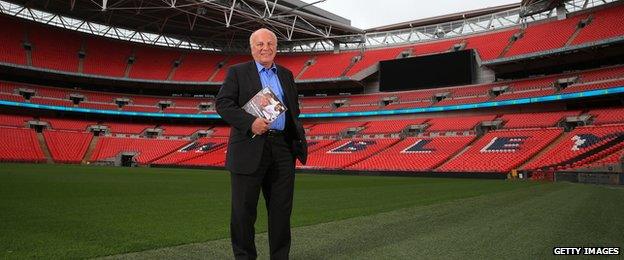
Is the hard work towards long-lasting reform still to come for Greg Dyke?
Speaking at the time, Dyke, 67, made the root of the problem - and its consequences - very clear.
"In the future it is quite possible we won't have enough players qualified to play for England who are playing regularly at the highest level in this country or elsewhere in the world. As a result, it could well mean England's teams are unable to compete seriously on the world stage," he said.
This summer's performance by England at the World Cup in Brazil has served only to reinforce the view that radical change is needed.
Roy Hodgson's men finished bottom of Group D with only one point from their three group games.
And at the heart of the issue is the belief that England's best youngsters are being left to wither on the vine as clubs habitually seek to bring in imported talent.
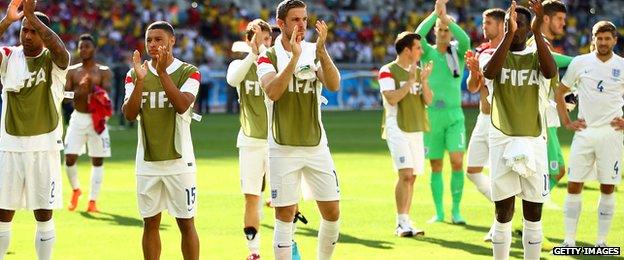
England players applaud the crowd during the World Cup in Brazil where they finished bottom of Group D
It is in this context that the FA is now seeking to reform work permit rules for players from outside the European Union (EU).
It has sent out its first draft of proposals to reduce the number of non-EU players within English football by up to 50%.
A consultation paper has been sent to the Premier League, Football League, Professional Footballers' Association (PFA) and League Managers' Association (LMA) and it is hoped that the new regulations can be introduced next season.
But what impact will any change have on increasing the chances for young English players to cement a place in Premier League and Football League club squads?
Up until the end of last season 122 non-EU players had entered English football since 2009.
Many of those, such as Argentina's Sergio Aguero who signed for Manchester City in 2011, represent the sort of elite player who has helped make the Premier League a global success story.
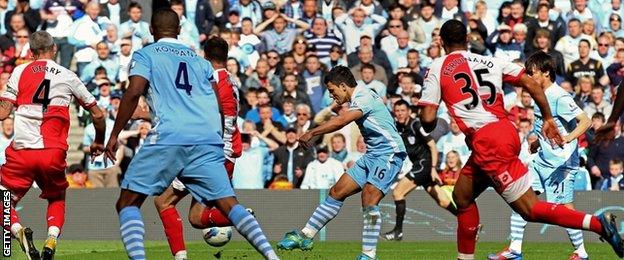
Sergio Aguero scores the dramatic late winner against QPR in the final game of the 2011-12 season
Aguero's dramatic late winner against QPR in the final game of the 2011-12 season secured City the league title on goal difference from Manchester United.
And the FA are seeking to make it easier to allow that category of player to come to England.
There is an easing - from 75% to 30% - of the percentage of competitive international matches that players from countries in the top 30 Fifa ranking must have played in the past two years.
But the FA believes there are still too many players being brought in because they provide a cheaper alternative to their British or EU counterparts.
Dyke admits that the numbers involved are small in relative terms - but believes it is a measure that will help increase the talent pool available to the England manager to select from in the long term.
We will learn the views of the respective leagues and their clubs in due course.
The Premier League shareholders - the 20 clubs that form the division - have a regular meeting scheduled for November. The issue of work permits is likely to be on the agenda.
There could yet be sticking points though.
The new proposals say only players from the top 50 Fifa-ranked countries, external will now be allowed in, down from the top 70 under the current system.
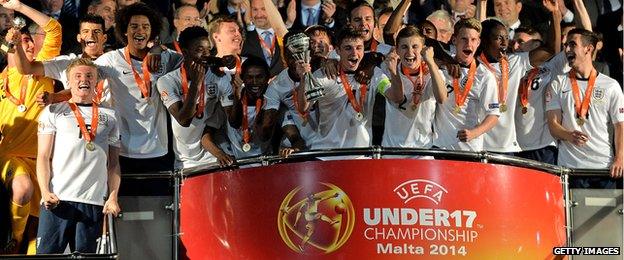
England won the Under-17 Euro Championships 2014
That would prevent any club who believe they have discovered the new George Weah, who hailed from Liberia, from joining them. Ballon d'Or winner Weah played for AC Milan, Manchester City and Chelsea.
Liberia are currently ranked 119th in the world and unless the player costs more than £10m, in which case he would have an exemption from the rules, a visa would be denied.
For the Premier League, which was established upon the principles of the free market, and which constantly strives to stay one step ahead of its main European rivals, there could be fears that its ability to widely recruit is being unnecessarily hindered.
Once again, the battle of interests and wills between club and country will come to the fore.
Dyke targets 2022 World Cup win for England
Other measures proposed by the England Commission are proving difficult to implement, notably the introduction of B teams.
Under plans, B teams could be promoted and relegated between Leagues One, Two and Three (a new division) and the Conference, but could not play in the Championship and must always be at least one tier below the full side.
They would also be barred from entering domestic cup competitions like the League Cup and FA Cup.
Intriguingly, despite being criticised when announced, Dyke has yet to give up on the idea. Negotiations with the Football League and "others" are said to be continuing.
Measures to tackle grass-roots facilities and coaching standards are due this Autumn.
But reform of the work permit system would provide the FA and Dyke with a tangible victory and give a counter-argument to suggestions that the Commission has simply been an expensive debating chamber.
If a consensus can be reached then it would give the process of getting the England team back on track a kick-start.
But the hard work towards lasting reform, as Dyke knows only too well, is still to come.
- Published17 September 2014
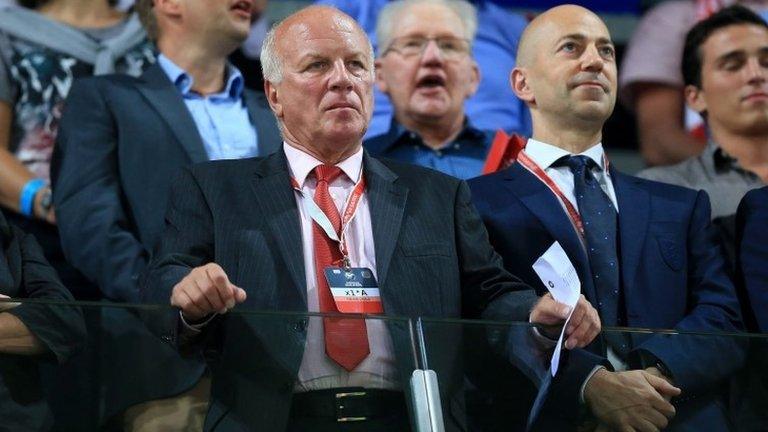
- Published16 September 2014
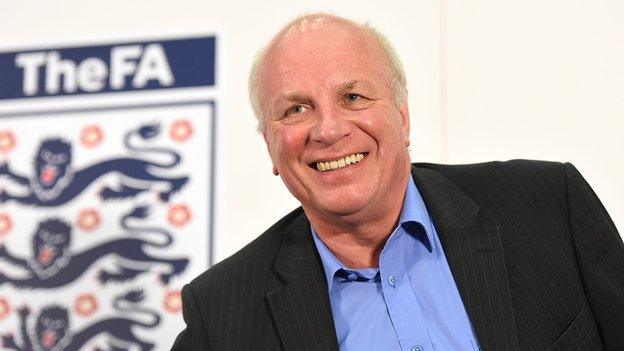
- Published8 May 2014
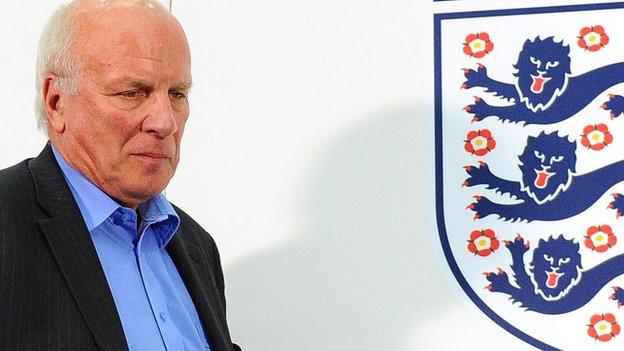
- Published8 May 2014
- Published7 June 2019
